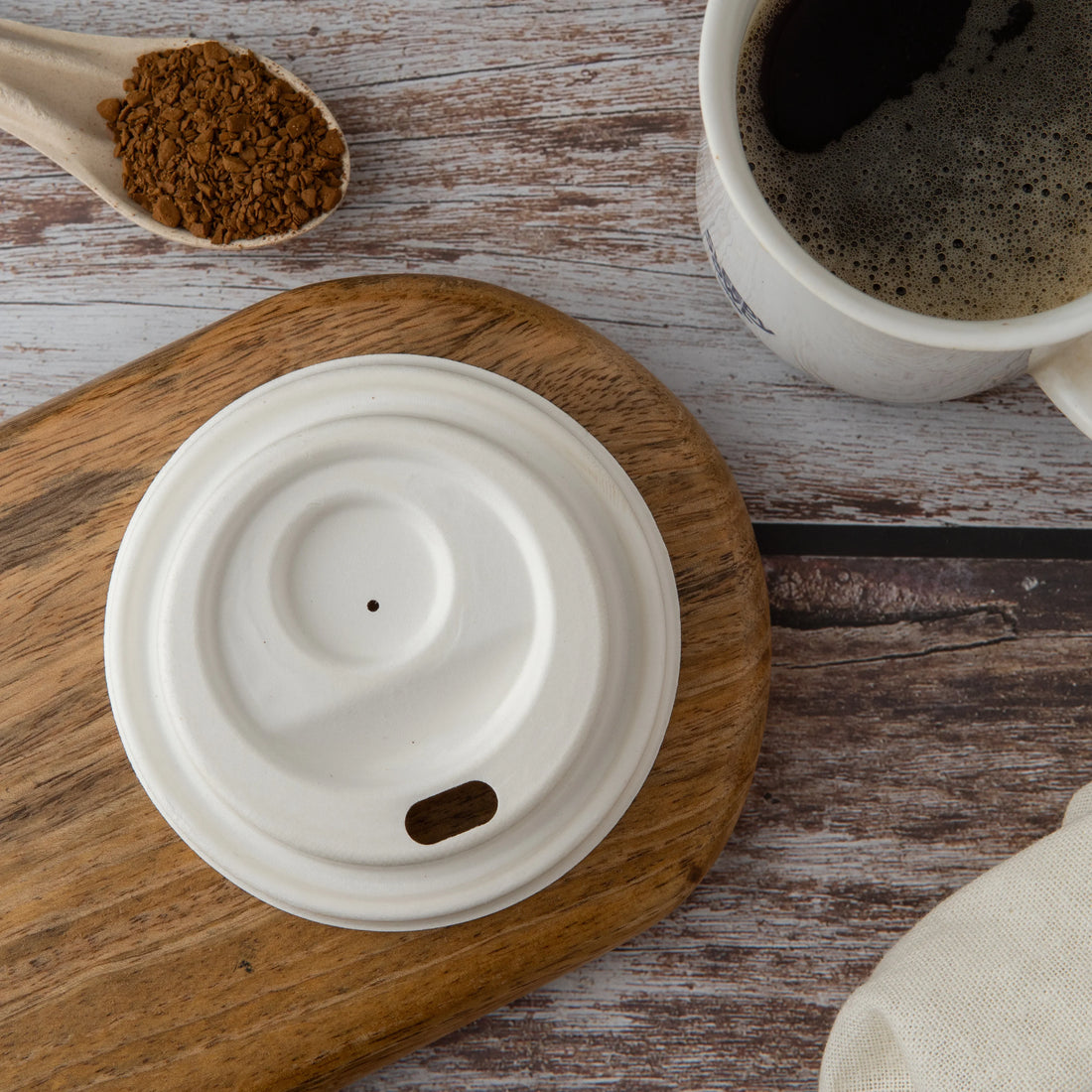
From Farm to Table: India’s Agricultural Waste Turns into Green Packaging
Primo by FibmoldShare this article
Turning Agricultural Waste into Packaging Treasure
Every day, millions of Indian families, cafes and restaurants use disposable coffee cups, food delivery containers and beverage lids daily. What was even better though is that these things that do make it daily could not only do their job but good to the planet?
Due to the bagasse packaging and high-tech technology of molded fibre, the agricultural waste has turned into an Indian green packaging treasure. Such innovation is in line with the sustainability aim of India, and it provides a future where microwave safe food storage containers and lids with no plastic are totally compostable without the sense of inconvenience.
The blog discusses the transformations that agricultural waste is making in the packaging field, its ecological advantages, practical application and how PrimoPack by Fibmold is spearheading this green campaign.
The Challenge: Agricultural Waste and Single-Use Plastic Overload
India has a crop epidemiology of more than 750 million tonnes annually, out of which most is freely burnt- a source of pollution and health risks.
In the meantime, plastic packaging in the 3 million tonnes is discharged into the waste streams annually into the single-use plastic crisis. In response to this twofold hurdle, FSSAI and the Ministry of Environment policies have stepped up efforts to shift to sustainable coffee cups, compostable cup lids, and other eco-friendly food containers that can quickly degrade without releasing toxins. This not only tackles pollution, but it also reinvigorates agricultural byproducts as useful sources of packaging.
Why Compostable Packaging Matters: Environmental and Practical Benefits
By selecting a packaging that is derived from agricultural byproducts such as sugarcane bagasse, one can win several battles:
-
Eco-Friendly Disposal: Compostable packaging degrades in home or industrial compost in 90 to 180 days, as compared to plastic, which may take centuries.
-
Safe To Use: The containers and lids of PrimoPack are totally free from PFAS and BPA, providing a safe option when warming and cooling hot and cold food and beverages, with a warm capacity reaching 350 degrees Fahrenheit.
-
Functional Performance: Products such as anti-leak food containers, rectangular containers with lids, and single-wall cups with aqueous coating meet commercial standards, being oil and water-resistant, microwave safe, and sturdy enough for food delivery needs.
-
Renewable Resources: These recyclable, eco-friendly food containers save forests and lessen fossil fuel consumption by using agricultural fibers that grow at an unusually rapid rate, which means they are renewable.
Real-World Momentum: Regulations, Market Adoption & Consumer Demand
The transition to fiber-based packaging has been accelerated because of an increase in market demand and government support:
- One-use plastic is restricted by the Plastic Waste Management Amendment of 2023, which accelerates the introduction of bagasse lids and biodegradable tableware.
- Other states, such as Maharashtra and Karnataka, show a maximum of 40 percent decrease of waste in the landfills through the use of compostable bags in food chains.
- Customer loyalty increases at restaurants and cafes when they provide them with eco-friendly packaging.
- In 2024, the UN Environment Programme honoured the efforts of India, the complement to which was the message about Fibmold and PrimoPack, who proved the empowerment of rural women through sustainable packaging production.
How PrimoPack by Fibmold Powers India’s Green Packaging Future
PrimoPack is not merely selling containers; it is changing the landscape of packaging in India by making a wide range of environmentally friendly food containers:
-
Anti-leak Food Delivery Containers, round and leak-resistant rectangular fiber containers for restaurants with lids of 500 ml, 750 ml, and 1000 ml sizes, are designed to preserve Indian cuisines during their transportation.
-
There is a range of fiber lids for beverage cups that includes cold straw cut lids, hot sipper lids, and reclosable delivery lids, which are designed to provide spill-proof and convenient delivery of beverages in cafes and restaurants.
-
Aqueous-coated, single-wall cups with aqueous coating, multiple-size (7, 8, 12, 16, 20 ounces) cups, which provide water-resistant, durable, and compostable hot and cold beverage solutions.
Each of these products boasts:
-
Completely plastic-free lids, certified compostability, and fast biodegradability.
-
Design is a convenient design that is microwave safe food storage containers and oven safe.
-
Production that strengthens units headed by rural women, and provides sustainable livelihoods and social benefits.
PrimoPack is not just about products, but about education and engagement of the customers via an active Instagram and LinkedIn platform where they post product updates, sustainability tutorials, and community stories.
Conclusion: Join the Movement from Waste to Worth
The Indian agricultural prosperity is also bringing a revolution in packaging-Farm waste is being transformed into viable and sustainable, compostable, and plastic-free packaging materials.
Consumers and businesses may make greener decisions with companies such as PrimoPack by Fibmold, with a broad range of products such as leak-proof food delivery containers, and eco-friendly coffee cups with lids. The world can develop a circular economy to protect the planet and to be helpful to communities.
Find all their diversity on Instagram and LinkedIn under the title of Search PrimoPack, and become a member of the farm-to-table movement, — the place where sustainability and convenience of everyday life meet.
